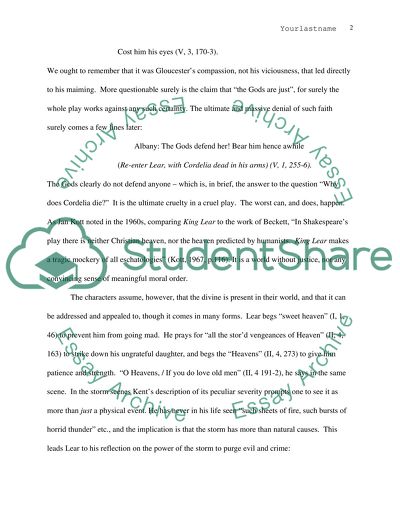Cite this document
(“Religion in King Lear Essay Example | Topics and Well Written Essays - 1500 words - 1”, n.d.)
Retrieved from https://studentshare.org/literature/1536784-define-and-discuss-the-religion-attitude-displayed-in-king-lear
Retrieved from https://studentshare.org/literature/1536784-define-and-discuss-the-religion-attitude-displayed-in-king-lear
(Religion in King Lear Essay Example | Topics and Well Written Essays - 1500 Words - 1)
https://studentshare.org/literature/1536784-define-and-discuss-the-religion-attitude-displayed-in-king-lear.
https://studentshare.org/literature/1536784-define-and-discuss-the-religion-attitude-displayed-in-king-lear.
“Religion in King Lear Essay Example | Topics and Well Written Essays - 1500 Words - 1”, n.d. https://studentshare.org/literature/1536784-define-and-discuss-the-religion-attitude-displayed-in-king-lear.


